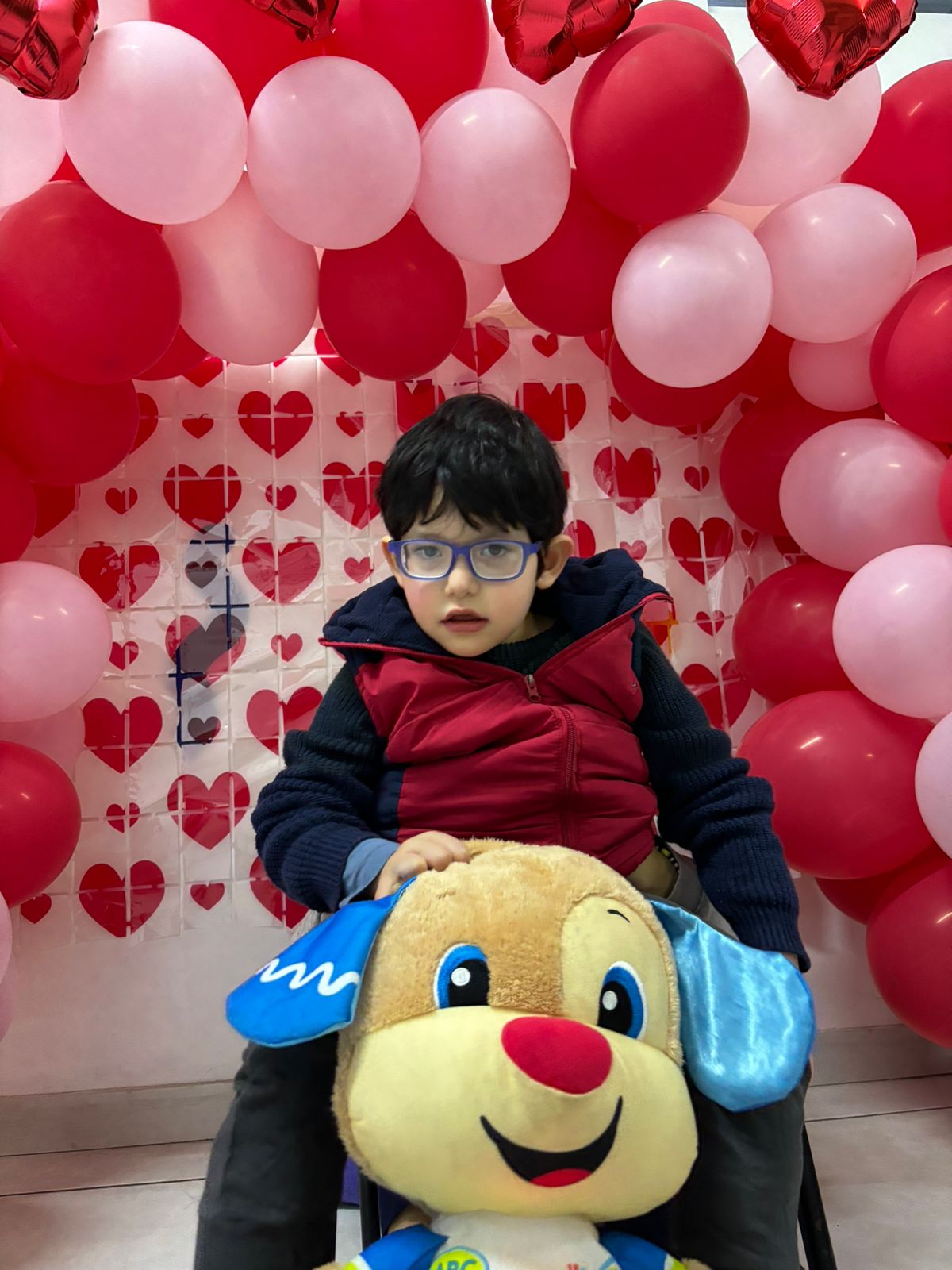The story of Dante
I was born as a normal child until one day my mom noticed I was turning blue with my arms up and eyes up. That was the beginning of this journey. Nobody believed my mom initially, but after consulting five doctors, one doctor finally trusted her and sent me to pediatric neurology. There, I was initially diagnosed with abnormal electrical discharges, or something close to epilepsy. Brain imaging studies showed everything was normal, but the discharges persisted yet. I was just getting medicated and the doctor told my parents he hoped I would grow up like a normal child and with some luck, the symptoms would fade with age.
Months passed away, and I didn’t develop like a normal child. I didn’t track objects with my eyes at four months, didn’t sit at six months, didn’t turn at eight, didn’t babble a single word at ten months or even crawl or walk at one year old. I was mistakenly diagnosed with autism and if it continued my lack of
development, I would be classified as “global developmental delay”. My mother, concerned, decided to change neurologists. She took all the tests in chronological order to the new doctor, who said we had done everything and the only thing left was a genetic test, which might not yield any results. Despite the cost and the posible results, my parents decided to proceed.
Four months later, after blood tests for my parents as well, I received my diagnosis: Congenital disorder of glycosylation type 1k or a mutation in the ALG1 gene. Finally, after 2 years and 3 months of back and forth, we had a diagnosis. Though it was difficult for my parents to hear it initially because it was a rare disease totally unknown in our country, without research or treatment, they knew what we were up against. Thanks to finding my diagnosis, we connected with another family in Mexico with the same diagnosis, and they supported us greatly in seeking help at the Mayo Clinic in the United States, where we entered a natural history study. They explained my disease and offered a possible treatment, which has significantly improved my abilities. Research is ongoing, and they are searching for a safe and effective treatment, but we are in good hands now.
Finding a disease diagnosis should be a right for everyone. Doctors should be alert to any abnormalities and not just consider common conditions, because despite being minorities, we are human beings who deserve proper care and, above all, a dignified and safe treatment.”
